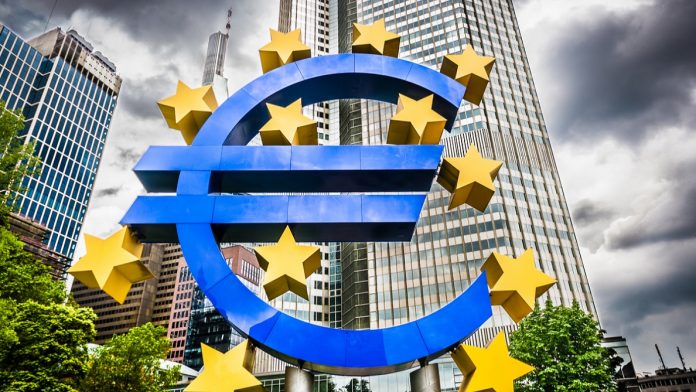With a lull in Brexit headlines, economic data drove movement in both the pound and the euro on Thursday. The pair spiked higher and lower on the release of data, hitting a peak of €1.1541 and a low of €1.1488 before closing slightly lower at €1.15. The pound was weakening versus the euro in early trade on Friday.
| What do these figures mean? |
|---|
| When measuring the value of a pair of currencies, one set equals 1 unit and the other shows the current equivalent. As the market moves, the amount will vary from minute to minute. If the euro amount increases in this pairing, it’s positive for the pound. Or, if you were looking at it the other way around:1 EUR = 0.87271 GBPIn this example, €1 is equivalent to approximately £0.87. This measures the euro’s worth versus the British pound. If the sterling number gets larger, it’s good news for the euro. |
The pound spiked higher early on in the previous session after figures showed Britain’s public finances received a boost ahead of the Chancellor’s Spring statement. The government received £14.9 billion more income from taxes than what it spent in January. This was the largest cash surplus since records began in 1993.
January is a key month for revenue receipts as it is when self-employed submit self-assessment returns. However, the surplus was still well ahead of analyst’s expectations. The strong data is good news for the pound which charged higher.
| Why does strong economic data boost a country’s currency? |
|---|
| Solid economic indicators point to a strong economy. Strong economies have strong currencies because institutions look to invest in countries where growth prospects are high. These institutions require local currency to invest in the country, thus increasing demand and pushing up the money’s worth. So, when a country or region has good economic news, the value of the currency tends to rise. |
Today there is no high impacting economic data due for release. Investors will once again look towards Brussels for any Brexit headlines. UK Prime Minister Theresa May has been meeting with EU Commission President Jean-Claude Juncker. Mr Juncker has made it clear that he is not very optimistic that a no deal Brexit can be avoided.
Will Eurozone Inflation Pull Euro Lower?
The euro was under the spotlight today as investors digested a slew of data for the eurozone and for Germany, the largest economy in the eurozone. The euro remained resilient even as data showed that, manufacturing activity in Germany contracted for a second straight month. The German manufacturing PMI declined to 47.6, well below the 49.9 analysts expected. Manufacturing continues to be impacted amid US—Sino trade tensions.
The European Central Bank also acknowledged growing concerns over the trade tensions impacting the eurozone economy. The minutes of the January ECB meeting showed that the ECB were increasingly concerned that mounting trade tensions were weighing on the outlook. The policy makers were aiming discussions more towards loosening monetary policy again rather than tightening policy. This would usually send the euro lower. However, the fact that investors had been expecting this allowed the euro to remain resilient.
Today euro investors have another day of high impacting data to digest. These include German GDP figures and eurozone inflation. Analysts are predicting that inflation will fall to 1.4% from 1.6% in December. Weakening inflation could see the euro fall as investors push the possibility of a rate rise back.
| Why do raised interest rates boost a currency’s value? |
|---|
| Interest rates are key to understanding exchange rate movements. Those who have large sums of money to invest want the highest return on their investments. Higher interest rate environments tend to offer higher yields. So, if the interest rate or at least the interest rate expectation of a country is relatively higher compared to another, then it attracts more foreign capital investment. Large corporations and investors need local currency to invest. More local currency used then boosts the demand of that currency, pushing the value higher. |
This publication is provided for general information purposes only and is not intended to cover every aspect of the topics with which it deals. It is not intended to amount to advice on which you should rely. You must obtain professional or specialist advice before taking, or refraining from, any action on the basis of the content in this publication. The information in this publication does not constitute legal, tax or other professional advice from TransferWise Inc., Currency Live or its affiliates. Prior results do not guarantee a similar outcome. We make no representations, warranties or guarantees, whether express or implied, that the content in the publication is accurate, complete or up to date. Consult our risk warning page for more details.
This article was initially published on TransferWise.com from the same author. The content at Currency Live is the sole opinion of the authors and in no way reflects the views of TransferWise Inc.





